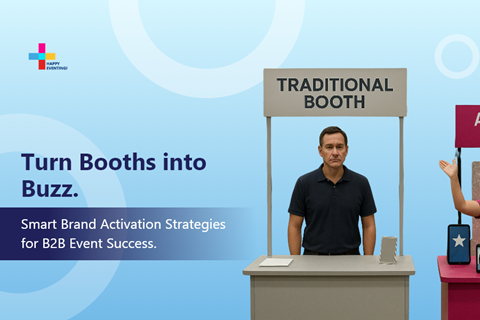

When I got my start in event management, I learned pretty quickly that there’s an event for everything. No matter what industry or business you work in, there’s an event for that.
In-person events are incredibly beneficial opportunities to share industry knowledge, meet with customers face-to-face, engage with prospects, and generate new leads. As a result, businesses are willing to spend a lot of money on events. In 2017, the global B2B event industry generated more than $1 trillion in direct spending. Events generate revenue for many other industries as well, including advertising, hospitality, and travel.
This year, however, the COVID-19 pandemic is changing the way the world works, and the events industry is no exception. In response to widespread travel bans and advice from medical experts to practice social distancing, many businesses are making tough decisions about the events they’ve been planning for months or even years.
Mobile World Congress, the largest mobile communications trade show in the world, became one of the first conferences to be canceled due to the outbreak. A wave of cancelations and postponements followed, including South by Southwest, Facebook F8, and E3 Expo. However, a curious new trend started emerging: Instead of outright canceling or postponing their events, many tech companies were announcing their in-person conferences would be reformatted as “digital-first” events.
Adobe Summit, originally scheduled to take place in Las Vegas during the last week of March, turned into an online event. Okta, DocuSign, Cisco, Domo, and other software vendors followed suit, converting in-person events to virtual ones. Google and Oracle announced similar initiatives for Google Cloud Next ‘20 and Oracle Modern Business Experience. (These events have since been postponed or canceled after new federal guidelines limiting meetings to 10 people or fewer. Although attendees will experience digital events from the safety of their own homes, virtual events may still require production teams and speakers to gather in the same space.)
Ten years ago, it’s very likely that all these events would have simply been rescheduled or canceled. But new technologies and products are making it easier than ever for organizations to transition their events to digital spaces. This transformation signals an important opportunity for people to participate in events they may have otherwise been unable to attend for financial or accessibility reasons.
It is a whole new world and even when physical events come back in their full capacity, virtual events are here to stay and will be that much more attractive.

Most B2B event press releases read like formal checklists, just a list of details no one remembers. But it’s crucial not to treat it as just an announcement. It’s your first shot at positioning your event in the market.

Corporate events are how companies bring people together to drive business forward, whether that’s customers, partners, prospects, or their own teams. Organizations are using different types of corporate events to...

Brand presence is easy. Brand impact takes strategy. That’s where brand activation comes in. It pulls in decision-makers, creates hands-on engagement, and converts event buzz into a pipeline. Static booths don’t cut it.